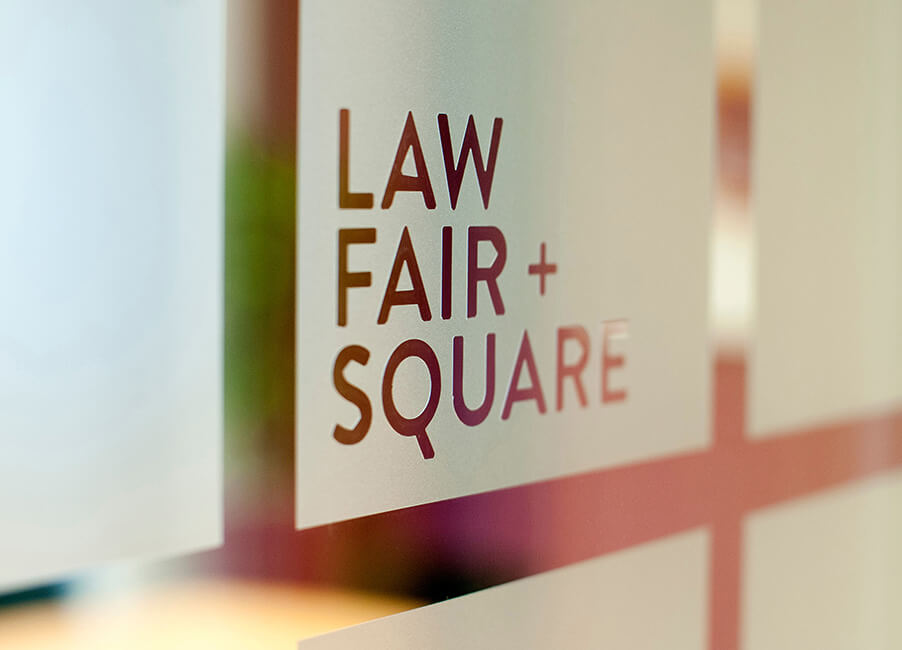New managing partner named at LCF Law
Compulsory Vaccines for Care Home Staff
 As you will know, effective from 11 November 2021, it will be compulsory for anyone who enters in a care home to be fully vaccinated against Covid-19. The Health and Social Care Act 2008 (Regulated Activities) (Amendment) (Coronavirus) Regulations 2021 were passed by the Government on 22 July 2021, but what does this mean for those running care homes, and what steps do they need to take now to ensure that they are ready for the change?
As you will know, effective from 11 November 2021, it will be compulsory for anyone who enters in a care home to be fully vaccinated against Covid-19. The Health and Social Care Act 2008 (Regulated Activities) (Amendment) (Coronavirus) Regulations 2021 were passed by the Government on 22 July 2021, but what does this mean for those running care homes, and what steps do they need to take now to ensure that they are ready for the change?
To whom does the rule apply?
The new requirement for vaccination will apply to anyone who enters a care home, including not only permanent employees, but also agency staff, those carrying out trades, hairdressers or others who may occasionally provide services at the care homes as well as CQC staff and volunteers.
Are there any exceptions to the rule?
There are a few exemptions which apply, including:
- Service users;
- Those who are able to provide evidence that they are clinically unable to have any authorised vaccine (referred to in this note as ‘clinically exempt’);
- Those providing emergency assistance, carrying out urgent maintenance to the premises, or attending in the course of their duties as members of the emergency services;
- Friends and relatives visiting service users or visitors to service users who are dying;
- Visitors to bereaved service users to provide comfort or support; and
- Under 18s.
Note that this will mean that, for example, gas and electrical engineers carrying out routine safety inspections, general maintenance staff and other ad hoc visitors will need to prove their vaccination status. Whilst this would not be necessary for, for example, a gas engineer dealing with a leak (as this would fall under urgent maintenance), the same could not be said for routine safety inspections.
Who is clinically unable to have any vaccine?
Only certain people with certain underlying health conditions, or those who have particular allergies will be clinically exempt. They should be provided with evidence of this by a healthcare professional. Pregnant women will not be included in this exemption as the guidance from the NHS is that pregnant women should be vaccinated, unless they have another medical reason not to be.
When does this come into force?
The requirement commences from 11 November 2021. This means that the latest date on which someone can have their first vaccine is 16 September 2021
What do Care Homes need to do now?
Communicate
The first step is to communicate the requirement to all those working in the home, including any agencies used to provide agency workers, and any contractors who may be used on a regular basis. Policies should also be updated to ensure that they reflect these requirements. All those working in the home should be reminded that, as a result of the change in the law, they must either be fully vaccinated or provide evidence that they are clinically exempt no later than 11 November 2021. They should also be informed that, as a result of the change in legislation, if they are unable to provide the required evidence by the deadline, they will no longer be able to work in the home. For employees, this may mean that a dismissal process will need to be followed.
Employers would be well advised to inform employees now of the latest date on which first vaccines should be obtained (16 September) to ensure compliance with this deadline, and to issue reminders as the deadline approaches.
Obtain evidence
The second step is to obtain evidence from those working in the home of their vaccination status. A record should be kept of what evidence has been provided and the date on which this was obtained, including details of by whom this was checked. Detailed guidance has not yet been provided on what is required, but it makes sense in the meantime to obtain copies of this evidence to retain on file. Given that notice will need to be served in some cases by 18 August 2021 (see below), employers would be well advised to take steps to obtain this information sooner rather than later, and to set a deadline for the information to be provided so that where necessary for staff who fail to comply, notice can be given and expire by the 11 November deadline.
Note that this type of information will fall under Special Category Data under the GDPR and privacy notices will therefore need to be updated to reflect the information which is being processed, and the reasons for this. As there is a legal requirement to obtain this information, there will be a legal basis for the processing of this information, and privacy notices will need to be updated accordingly.
As the information will need to be obtained for all those working in the home, including contractors and other third parties, both employee and external-facing privacy notices will need to be updated and communicated to the relevant parties.
What if any employees or other workers refuse to provide evidence or to get vaccinated?
As there is a legal requirement to be vaccinated unless clinically exempt, then care homes will be able to take action against employees or other workers who refuse to get vaccinated or who refuse to provide the evidence required. Indeed, to allow any such individuals to continue to work in the home would be unlawful.
For those individuals who are self-employed or agency staff, this will be relatively straightforward, provided that the care home complies with the terms of any contracts. Notice will need to be served in line with the terms of any contracts in time for the 11 November deadline.
For employees, it will be a little more complicated. Employers will need to go through an appropriate process prior to any dismissal, including discussing with the individual to establish the reasons, if any, for their refusal, and warning them of the potential consequences of failure to comply. However, if they still refuse to comply and cannot demonstrate that they are clinically exempt, it will be open to the care home to terminate their employment on notice – following an appropriate dismissal procedure. Note that as notice will be required, for long-service staff or those entitled to longer notice periods under their contracts, this could mean that notice needs to be served at the latest by 18 August 2021 (although it could subsequently be withdrawn if evidence of vaccination or exemption was then produced). Employers would therefore be well advised to start collecting evidence and discussing with staff sooner rather than later.
What about when we are recruiting new staff?
As any new staff will also have to comply with the vaccination requirements, recruitment policies and procedures will need to be updated. If not already obtained during the application process (see below), all job offers should be made subject to a requirement that the applicant is able to prove either that they have had the vaccination or are clinically exempt, or under the age of 18. As with any other medical information, unless it is required as set out below, confirmation of vaccination status should not be obtained until a conditional offer has been made.
Note that if interviews or other recruitment procedures are to take place in the home, evidence that candidates are either fully vaccinated or are clinically exempt will need to be obtained prior to the candidate attending the interview. If this is the case, this will need to be made clear on application forms/ job advertisements, along with the reasons for this. Likewise, if any third party is assisting with the recruitment process, such as external HR advisers, they will also need to show their vaccination status or that they are clinically exempt in advance.
Care should be taken not to base any recruitment decisions on vaccination status where the candidate is clinically exempt. Candidates who are clinically exempt may be covered by the disability provisions of the Equality Act 2010 and any decision based on this may therefore lead to a claim of disability discrimination.
What other steps should be taken?
It is likely that any agencies providing care staff to homes will be aware of the requirement for vaccination unless clinically exempt and will be looking at updating their procedures accordingly. However, it is sensible to speak to preferred agencies so that care homes are aware of the processes they have in place well in advance of the change and can be satisfied that they are already taking the necessary steps to ensure compliance.
In addition, it would be sensible to speak to any other third parties, such as volunteers, contractors, hairdressers, caterers and any other third parties who may attend the home on a regular basis to discuss the new legislation, including the evidential requirements, so that they can start obtaining the necessary evidence from their staff and/or ensure that they are personally able to provide this upon request, and to ensure that they are aware of the deadline and the consequences of failing to do so.
As set out above, privacy notices will need to be updated to reflect the additional special category data being processed for both employees and other third parties, and data protection policies may need to be reviewed.
What can we do to help?
LCF Law can assist with any element of the process, from communicating with staff, updating employee privacy notices, updating polices and the procedure to follow if any staff are unwilling to get vaccinated, or to provide evidence of vaccination or clinical exemption. Please contact Gemma Sherbourne on 0113 238 4041 or email ku.oc1714049531.fcl@1714049531enruo1714049531brehs1714049531g1714049531 for more information.
Our commercial team can also assist with updating external-facing privacy notices as well as amending contracts with other third parties where required. Please contact James Sarjantson on 0113 201 0401 or email ku.oc1714049531.fcl@1714049531nostn1714049531ajras1714049531j1714049531 for more information.

